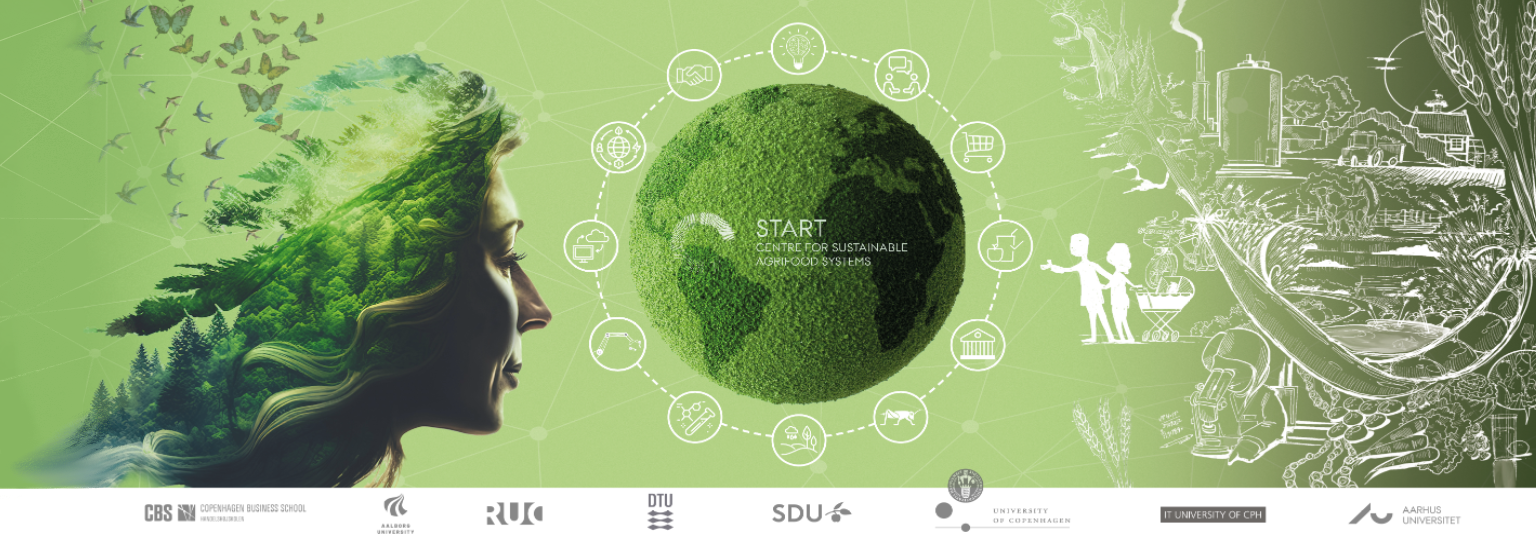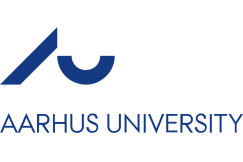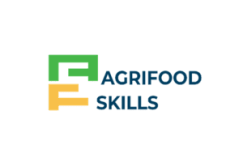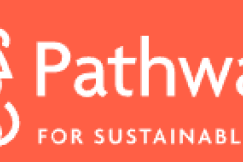Pledges
Aarhus University - pledge to EU Code of Conduct on Responsible Food Business and Marketing Practices
Pledges
Publishing organisations:
Aarhus University
Relevant countries:
Albania
Organisation types:
Academic / Research and VET Institutions
Next progression check date:

May 2025
Aarhus University – Pledge to EU Code of Conduct on Responsible Food Business and Marketing Practices
Introduction
Aarhus University, in its capacity as founding partner of the Danish Centre for Sustainable AgriFood Systems (START), hereby expresses its interest to become a collaborative supporter of the EU Code of Conduct on Responsible Food Business and Marketing Practices.
Aarhus University
Aarhus University is a top 100 university with 50+ master’s and bachelor’s degree programmes in English. We have been achieving international excellence in research and education since 1928.
Aarhus University is a top international research university with 11,000 employees and 44,500 students, mostly postgraduates. and has grown to become a comprehensive university covering all academic fields and provides research-based consultancy to public and private sectors including Danish Ministries for agrifood and environment.
Our comprehensive profile allows us a broad perspective on the agrifood-systems thinking, and we are committed to contributing to the green transition on a national and international level.
The START initiative
In 2021, Aarhus co-founded the START initiative, a united effort by all eight Danish universities to take responsibility in the green transition of the agrifood systems. Through interdisciplinary research, scientific discussions, and societal interactions, START aims to contribute to Denmark’s and Europe’s aspirations for global leadership in the green transition of the agrifood sector. Achieving these goals necessitates the inclusion and empowerment of societal stakeholders, including industry, policymakers, and civil society, towards achieving a common goal of public good.
Over the past years, START has established a unique research platform that mobilizes interactions across various disciplines and sectors. Representing more than 300 researchers, START’s structure is unprecedented, uniting all Danish universities under one umbrella to transform the agrifood system within planetary boundaries. In a competitive research environment, START emphasizes collaboration over competition, fostering a new culture in agrifood system research focused on interdisciplinarity and societal impact. START also serves as a knowledge-sharing platform for outreach and
inclusion, engaging in the broader society, which is crucial for a successful green transition. The platform welcomes researchers from any discipline, recognizing that the green transition will affect all aspects of society. START’s nine hubs provide thematic direction, covering all aspects of the agrifood system. Each hub includes various approaches, networks, and disciplines, led by interdisciplinary teams of scientific coordinators. Researchers can be part of multiple hubs, reflecting that START seeks to break down silos.
Aarhus University – the Code of Conduct pledge
Through START, and several additional initiatives, Aarhus University is fulfilling the aspirational objects of the Code of Conduct. We here provide examples through the START initiative but also briefly highlight expertise in additional co-creation activities e.g. open innovation sciences and a variety of interdisciplinary centres open for outreach to industry and society in general.
In relation to START, Aarhus University accommodates the aspirational objects of the EU Code of Conduct on Responsible Food Business and Marketing Practices in relation to:
CoC 0bjective 1: Healthy and future food
CoC objective 3: A climate neutral food chain in Europe by 2050.
CoC objective 4: Optimised circular and resource-efficient food chain in Europe
CoC objective 6: Sustainable Value Creation in the European food supply chain
The main catalyst that START can offer is a pipeline of future knowledge and insights through research, ensuring that decisions are made by the latest scientific discoveries. By fostering interdisciplinary collaboration and engaging societal stakeholders, START contributes to the development of innovative solutions that benefit the entire community. This approach not only advances the agrifood sector but also strengthens the democratic process by promoting transparency and accountability through public awareness and inclusion, thereby creating a framework for informed policymaking. Through its unique structure and emphasis on collaboration, START offers to play a crucial role in shaping a sustainable and resilient future for Europe and beyond.
In its recent strategy, START has outlined plans to become an even stronger player in knowledge sharing, building robust collaboration models that benefit the entire food-system community.
START has in the past two years built a structural foundation embodied by its novel Triple-I approach to address the challenges outlined above and realise its vision of societal impact and transformation. It mandates an Integrative approach to technical innovation and societal transformation for the various interlinked green challenges related to climate, environment, biodiversity, food, health, society, biobased economy, and more. It is founded on an Inclusive approach that involves stakeholders and actors in science, society and businesses by means of novel methodologies such as living labs and citizen sciences. To meaningfully achieve this, an Interdisciplinary approach that enhances the cooperation of scientific researchers from a wide diversity of disciplines from natural, technical and digital sciences to social sciences, humanities and arts, is essential.
START - The four key objectives:
1. Research Community: To strengthen cross-disciplinary community-building by supporting novel and cohesive networks involving societal stakeholders to promote reciprocal understanding within the ecosystem (research, industry, policy), which is key to the systemic transition of the agrifood system.
2. Triple-I Masterclasses: Masterclasses operationalize, disseminate and culturally embed the concept of Triple-I methodologies as the foundation for interdisciplinary research. The goal is to disrupt silo thinking in research, enabling a system critical approach that can lay the foundation for a transformed, cohesive and healthy ecosystem. Masterclasses in Triple-I will go hand in hand with classes on funding and impact assessment frameworks, providing a comprehensive process through which researchers are given the tools to become thought leaders.
3. Young Researcher Programme: To create and promote a more robust framework for young researchers through interdisciplinary capacity-building, equipping them to address societal challenges through research.
4. Extended Outreach activities: To achieve a truly global green transformation, it is imperative to build international awareness and collaborations among players in agrifood systems research. START has dedicated resources to pursue collaboration and knowledge-exchange with international partners, including universities, industry and policymakers at a European level.
In the future, START will expand and refine these objectives, specifically focusing on developing the assets for the agrifood systems and communities. To follow these steps please see attached pledge or visit the official START website for updates on community relevant activities and events.
Aarhus University official pledge to EU Code of Conduct
Aarhus University commits to fulfilling the key objectives of the Code of Conduct through START activities and by its various others outreach initiatives. We will actively promote the Code of Conduct to the START Steering Group and additional stakeholders in the agrifood system.
In alignment with START’s strategy, we will enhance our role in knowledge sharing and collaboration, benefiting the entire food-system community. By fostering interdisciplinary research, scientific discussions, and societal interactions, we aim to contribute to Denmark and Europe’s aspirations for global leadership in the green transition of the agrifood sector.
Our future initiatives will focus on developing assets for agrifood systems and communities, bridging gaps across disciplines and promoting a holistic and systemic transformation. We will engage industry, policymakers, and civil society to ensure a successful green transition, leveraging the collective expertise of over 300 researchers from various disciplines.
Together, we will build a sustainable and resilient future, driven by scientific excellence and collaborative efforts.
Aarhus University
Topics
Albania
Armenia
Austria
Belgium
Bosnia and Herzegovina
Bulgaria
Croatia
Cyprus
Czechia
Denmark
Estonia
EU-27
Finland
France
Georgia
Germany
Greece
Hungary
Iceland
Ireland
Italy
Kosovo
Latvia
Liechtenstein
Lithuania
Luxembourg
Malta
Moldova
Montenegro
Netherlands
North Macedonia
Norway
Poland
Portugal
Romania
Serbia
Slovakia
Slovenia
Spain
Sweden
Switzerland
Türkiye
Ukraine
Other
Academic / Research and VET Institutions
Business Support Organisation
Company with 250 or more employees
Cluster Organisations
Consumer Organisations
Cultural and Heritage Organisations
Destination Management & Marketing Organisations
EU Institutions
Financial Institutions and Investors
Industry Associations and Chambers of Commerce
International Organisations
Local Authorities
Media / Journalist Organisations
National authorities
Networks and Federations / Confederations
NGOs / Non-profits
Notified Bodies
Regional Authorities
SMEs (a company with less than 250 employees)
Social Economy Entity
Trade Unions
Other
-
CoC aspirational objectives
-
-
1. Healthy, balanced and sustainable diets for all European consumers
-
2. Prevention and reduction of food loss and waste
-
3. A climate - neutral food chain in Europe by 2050
-
4. An optimised circular and resource-efficient food chain in Europe
-
5. Sustained, inclusive and sustainable economic growth, employment and decent work for all
-
6. Sustainable value creation in the European food supply chain through partnership
-
7. Sustainable sourcing in food supply chains
-
Share
Documents
Comments (0)
Related content
See also
Launch of the Agri-Food Stakeholder Support Platform
Online event
- Categories
- 2. Prevention and reduction of food loss and waste 3. A climate - neutral food chain in Europe by 2050 4. An optimised circular and resource-efficient food chain in Europe +3 more
AGRIFOODSKILLS Project
- Categories
- 2. Prevention and reduction of food loss and waste 3. A climate - neutral food chain in Europe by 2050 4. An optimised circular and resource-efficient food chain in Europe +3 more
PATHWAYS - Driving the transition to greater sustainability in livestock-based food systems
- Categories
- 2. Prevention and reduction of food loss and waste 3. A climate - neutral food chain in Europe by 2050 4. An optimised circular and resource-efficient food chain in Europe +3 more




